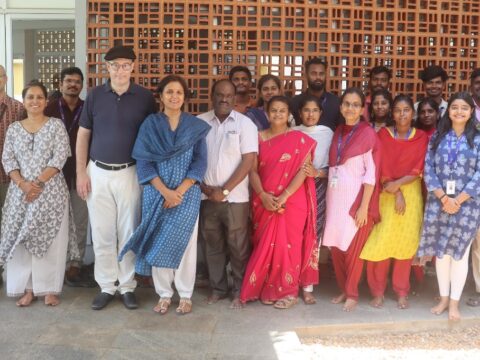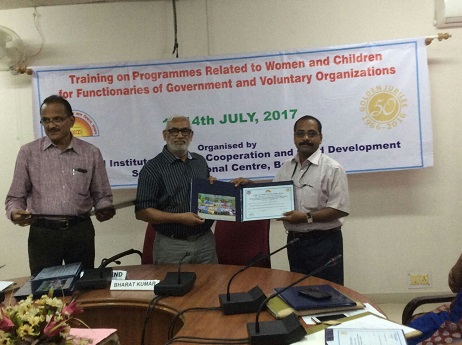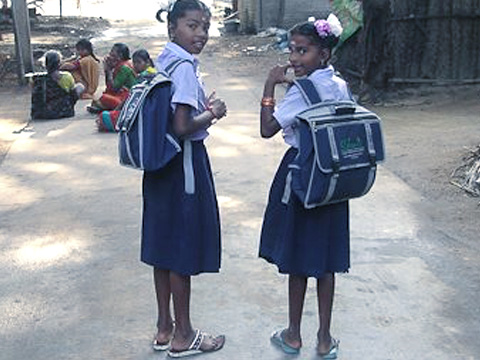Penned By Communications Manager, Ms. Aditi Mandali
Our Founder, Mrs. Rajkala Partha, has always reminded us that knowledge must be shared generously, and that it is our responsibility to bring ground realities to light for the next generation of social workers. For 25 years now our work has been rooted in communities, but our ethos has always extended beyond the tangible impact of our programs. We see ourselves not only as an organisation that serves, but also as one that can guide and inspire youngsters who are beginning to shape their professional and personal journeys in social work.
This spirit guided our recent two-day engagement with the first-year students of the Department of Social Work at Pondicherry University. The first interaction at the university campus and the second at our social centres — this created space for conversation, and honest reflection.
At The University
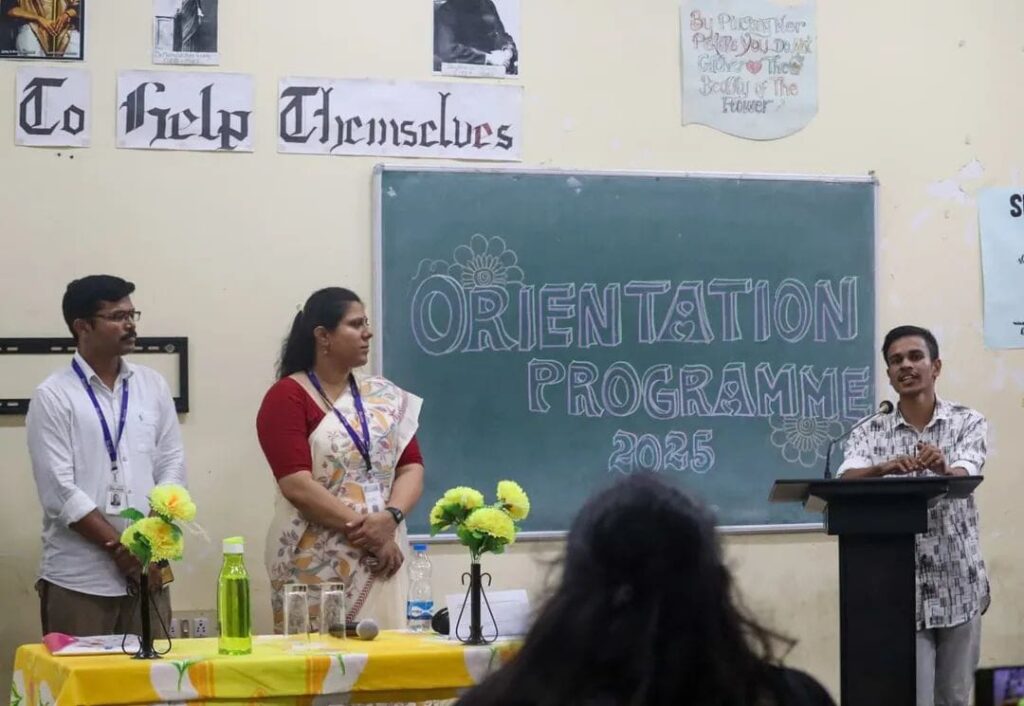
On August 1st, Ms. Vandana Shah (Operations Director), Mr. Prakash (Program Manager), and Ms. Aditi (Communications Manager) visited the university for an orientation session. The Department of Social Work had invited Sharana as part of the students’ week-long field exposure sessions, designed to reassure them about the choices they had made in stepping into this field. We were received warmly by both the faculty and the students. These young people, still fresh from choosing their academic and potential career path, carried a mix of excitement and uncertainty in their eyes. For some, this was the beginning of a lifelong calling. For others, it was a tentative step into something new. But what was palpable was their attentiveness, an eagerness to absorb what the world of social work might look like in practice.
The orientation began with a two-hour presentation that walked them through Sharana’s journey, philosophy, and the programs we run for children, women and communities at large. The stories and videos we shared brought these experiences to life. The students did not just hear about statistics or processes, but also saw faces, voices and lived realities they could connect with. We spoke of the challenges that families in vulnerable communities face, from barriers to education, cycles of poverty, gender inequality to systemic exclusions. Alongside these challenges, we also shared the resilience, and hope we see every day in the communities we serve.
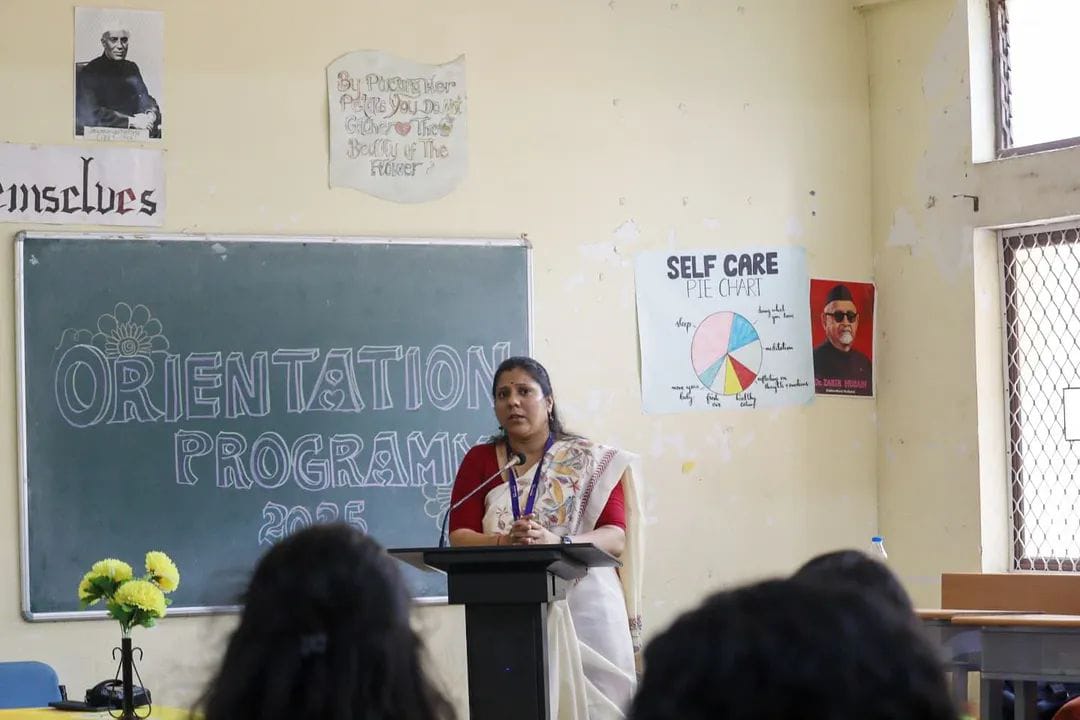
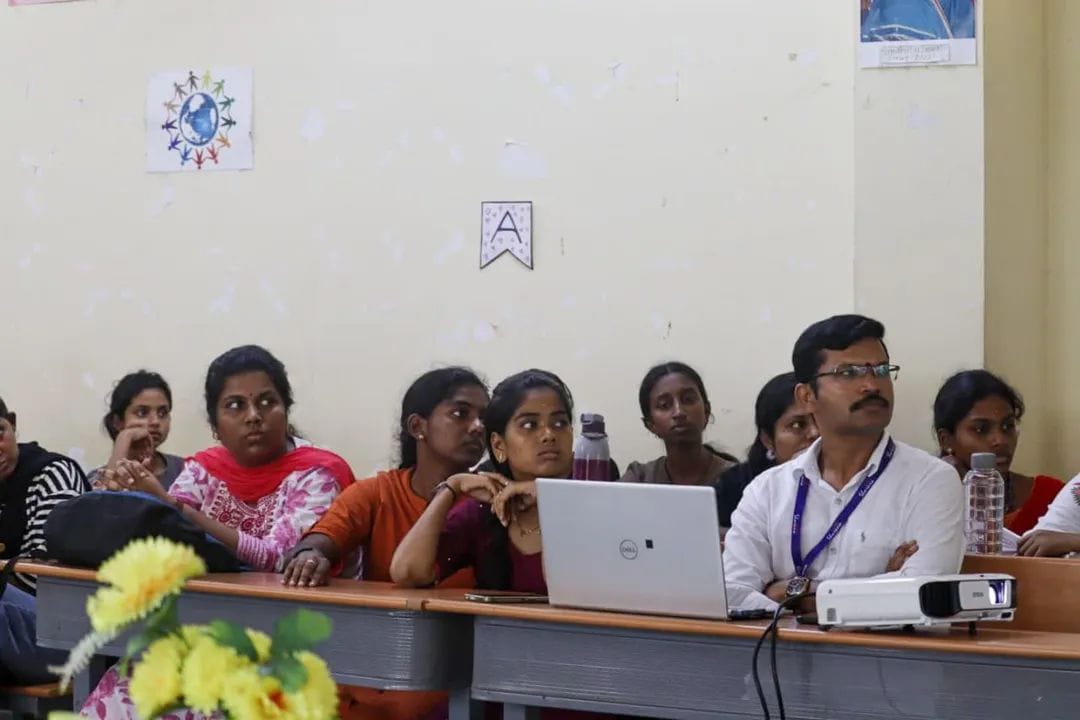
To close the session, we offered an exercise that invited the students to imagine themselves in this career path and to picture the ideal versions of themselves as social workers. It was not an academic task, but one that calls for reflection. Social work, after all, is as much about who you are as it is about what you do. As the students reflected and spoke, one could sense a spark of recognition in the room: that social work is not only about structures and interventions, but about empathy, patience and the ability to walk alongside others. The first day ended with a quiet but noticeable energy. The students had been introduced to Sharana’s work, but more importantly, they had begun to think about what it truly means to become a social worker.
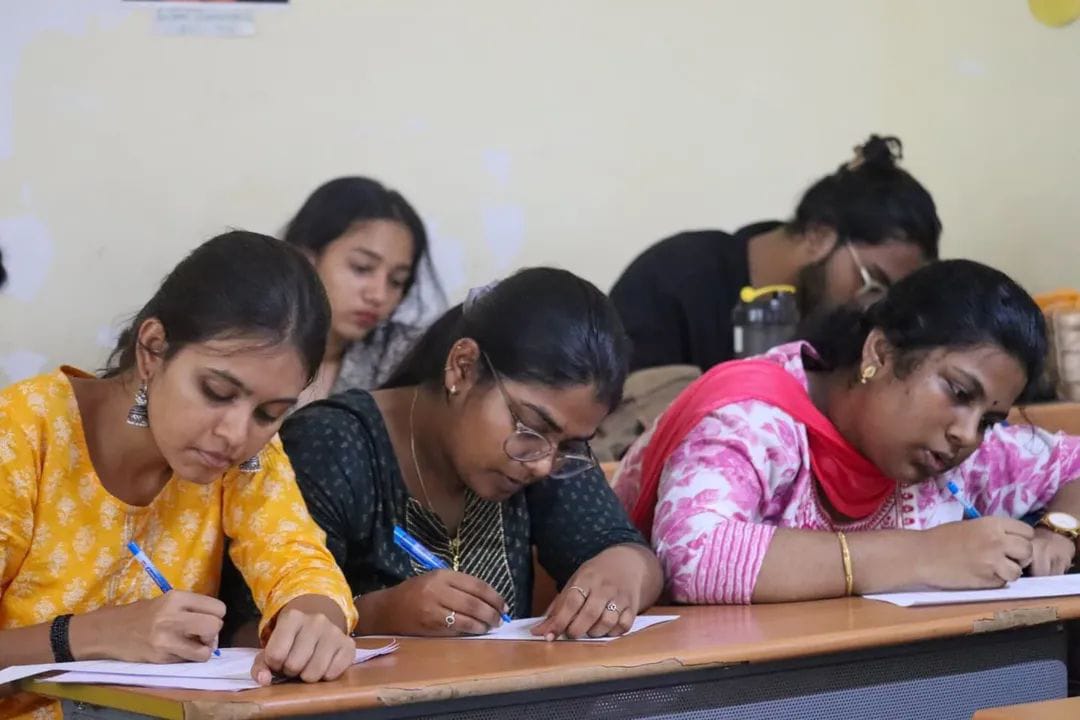
At Our Social Centre
20 days later, the same group of students visited our centre for the second part of this engagement. For almost two decades, Sharana has worked hand in hand with academic institutions, especially the Pondicherry University to create such bridges between learning and practice. They were accompanied by Dr.R. Nalini, Professor of Social Work at Pondicherry University and also a valued board member of Sharana. We extend our heartfelt gratitude to Dr. R. Nalini, whose presence and support on this day added depth and meaning to the students’ experience. This time, the focus of the orientation was less on information and more on experience. Our Operations Director and Program Manager led the session with an emphasis on Sharana’s philosophy and ethos, and they planned the visit to be interactive and practical.

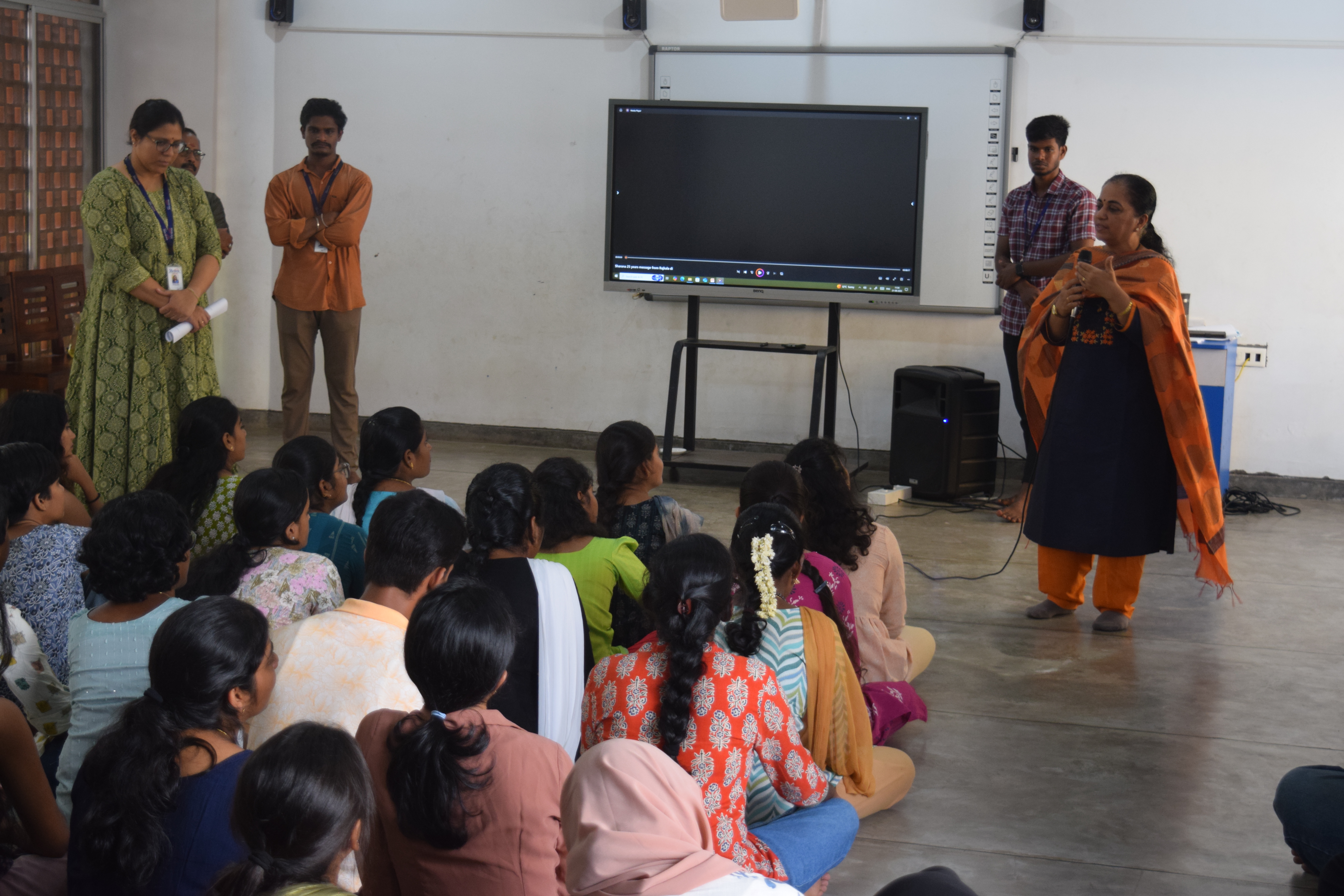
Dr. R. Nalini interacting with the students
The students were invited into role-plays and group games that simulated real scenarios from the community. Some of them took on the role of social workers, while others played the part of families and individuals in need. Together, they had to think, respond to dilemmas, and take the steps they believed were right. After each exercise, the group reflected together. What could have been done differently? What principles guided their decisions? Could there have been another approach? Through these conversations, the students saw how layered community engagement really is.
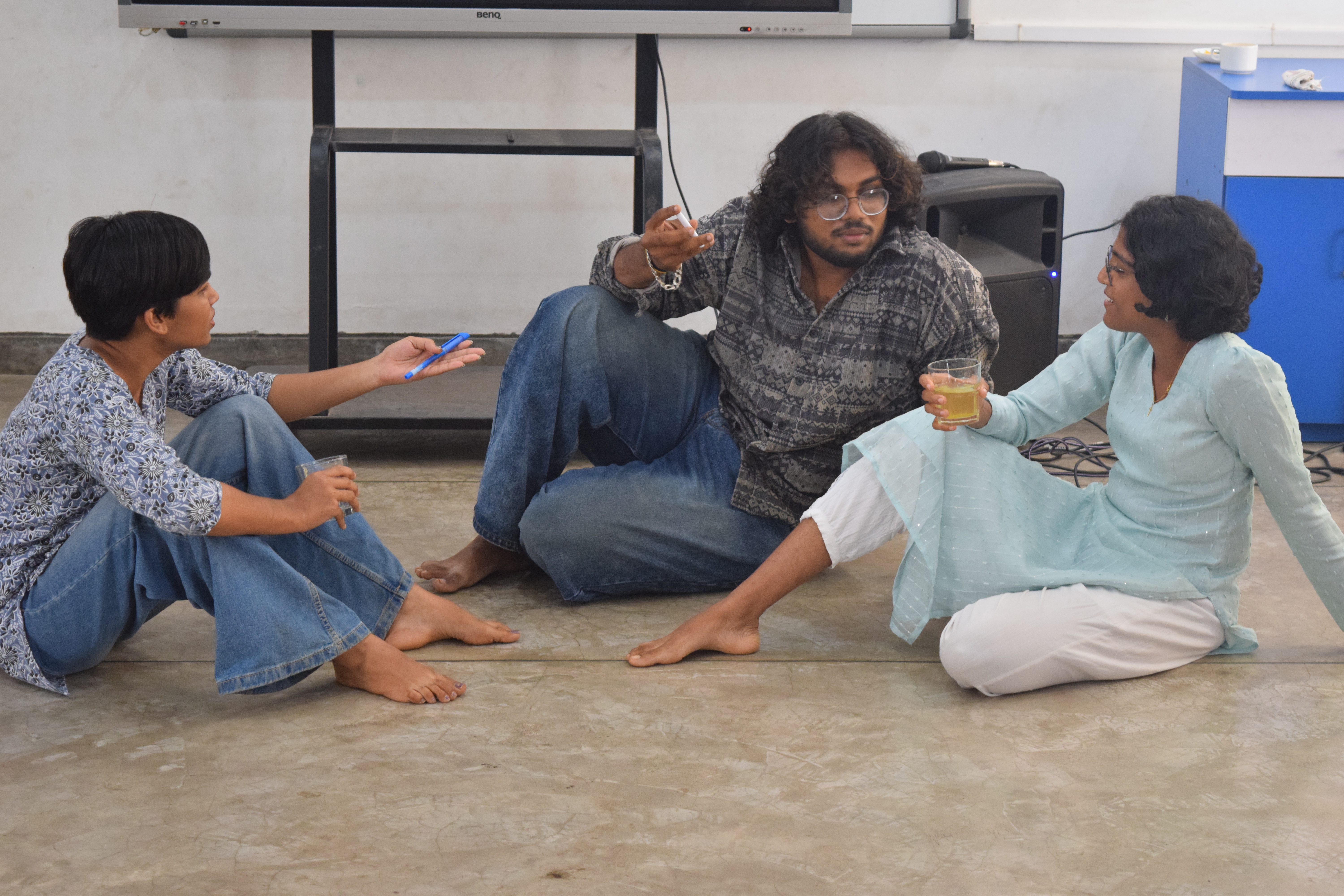
At Sharana we often say that change is not the work of one organisation alone. It requires many hands, many hearts and many minds. By opening our doors, sharing our stories and inviting students into our world, we hope to play a small part in shaping social workers who are not only skilled but also deeply humane.







